By Bill Bartholomew
Talk Host/Podcaster/Journalist/Musician
 Folks in the Gen Z and millennial demographics are heavily engaged in political issues, care about news in their communities and the world, and are constantly bombarded with content. So why are they less likely to tune into and interact with news/talk radio than older demographics?
Folks in the Gen Z and millennial demographics are heavily engaged in political issues, care about news in their communities and the world, and are constantly bombarded with content. So why are they less likely to tune into and interact with news/talk radio than older demographics?
Talk radio has historically skewed older, and from an ad portfolio standpoint, is often targeted at the coveted 35-54 and 55+ demographics. However, in a world where social media influencers and podcasters supply information to millions of young consumers, news/talk radio should be able to effectively compete for the ears of younger generations in a comparable, if not expanded way.
For all of the anecdotal and hard evidence that terrestrial radio may be trending in a downward direction, the format continues to have a vast reach. It is convenient to engage with it in automobiles, and occasionally in home or office settings. Yet, while younger generations listen to radio, news/talk is not the format that they turn to by and large.
Unlike many digital-first content producers, radio retains a unique quality: authority. By virtue of editorial standards, FCC regulation and brand – things that social media and podcasts often lack – radio has the unique ability to deliver credible, vetted, nuanced and universally trustworthy content that can instantaneously adapt to meet the needs of the moment. This is true in everything from natural disasters to rapidly evolving breaking news stories, providing a channel for immediate, reactionary insight and analysis.
There are several steps that news/talk radio should pursue in earnest to adapt to the current climate of content consumption, particularly by younger listeners, that can reach, and most importantly, retain broader, younger, more diverse and more engaged audiences.
- Introduce younger people into the conversation.
Too often, Gen Z and millennials are skewered by older hosts, mocked for their perceived naivety, unchecked optimism and me-first approach. While some of these qualities can be accurate, that approach reflects a disconnect between older generations and the experience of younger ones. Millennials and Gen Z have grown up in a post-9/11 world replete with “endless wars”, the fallout from the 2008 financial crisis, runaway student debt, a massive housing crisis, the mental health stressors of social media, Covid19’s impact on traditional youth experiences, climate change, a deeply bifurcated political environment and a constantly evolving quest for social justice. Through these experiences, younger generations offer an important perspective that should be assigned the same news value as experts from older generations.
Are you discussing shifts towards electric vehicles? Bring on someone from Gen Z to share their perspective on why steps towards carbon neutrality are important to them. Engaging a conversation on the president’s approval rating? Perhaps younger conservative and leftist voices should be included in the conversation. Discussing immigration? How about the perspective of a younger member of a Latino organization?
By giving younger generations and more diverse guests a platform, stations can simultaneously expand their content and reach. With consistency, the station’s brand will become more familiar to younger potential listeners who may be inclined to tune in to hear someone who shares their identity and perspective on – here’s that word again – a platform of authority. Let the guest do the work of establishing the credibility and importance of your station or talk show to younger audiences by posting about their appearance on social media, sharing audio clips and mentioning to their peers. It will build familiarity and trust among those generations, who in turn, will begin to tune in on a more regular basis.
Stations should also consider bringing more younger, competent voices into on-air roles, whether that be through reporting, segments, fill-in hosts, weekend shows or full-time hosts.
- Meet the audience where they are: their phones.
As mentioned above, the convenience of simply turning on AM/FM radio is highly appealing in automobiles, though as Apple Carplay continues to adapt and evolve, digital-first content is likely to become as simple and convenient in the near future.
Talk radio needs to make consuming their product on smartphones as simple and direct as turning on a traditional radio. This means no clunky websites, no lengthy pre-roll spots, a reliable stream connection and a “one touch” means of turning on and off the station. This should also mean expanding talk shows to high-quality video livestreams, following in the footsteps of the top YouTube and Twitch performers; developing unique content for TikTok and Instagram; building podcasts that are focused on specific issues, and; providing interaction via text and chat.
Radio has the ability to be the ultimate livestreamer, social media influencer and podcaster, but rarely harnesses these platforms in a meaningful way.
It is not enough to simply strive to “expand a digital presence”; stations and shows must engage in the hard work of building platform-specific content with their brands.
- Music, cultural references and themes for the modern age.
A few weeks ago on a seemingly benign episode of the TV show FOX NFL Sunday, panelists Jimmy Johnson and Terry Bradshaw offered an example of the type of cultural adaptation that sophisticated writers and producers provide their brands. While describing a fight between two football players, Mr. Johnson said something to the effect of “when it comes to these two, what’s that Taylor Swift song?”, and then in synch with Mr. Bradshaw, “bad blood!”. It is highly unlikely that these two 70+ men listen to Taylor Swift’s music with any regularity or would simultaneously pull the “Bad Blood” reference. Yet, with excellent preparation that played into the greater cultural moment as well as the specific, current Taylor Swift/NFL overlap, in a six-second span, FOX NFL Sunday was able to give the illusion that their panelists are contemporary, hip and plugged into “what is going on”. Is your station or show plugged into what’s going on? Do you use contemporary music for bumps? Are your images – including headshots and social content – modern, interesting and engaging or are they more akin to a miscellaneous real estate agent? You are a performer in an entertainment business that, while certainly paying homage to the past and lineage of the industry, must be contemporary in aural and visual presentation. This goes for everything from wardrobe on video and in photo to fonts on graphic design.
How often do you or your producer read Pitchfork to learn about new music that is breaking this week? How often do you or your producer read Variety to understand major trends that are happening in the broader entertainment industry? What live events are you broadcasting from, covering and building partnerships with? You should strive to be cutting edge.
- We need a friend now more than ever.
This is something that goes for all audiences, but particularly for younger ones. It’s OK, in fact, great to be yourself, present yourself from your generation and retain the authoritative stance that has built your brand. Take a look at the success that sports talker Mike Francesa enjoyed by leaning into his persona – and in turn – developing legions of younger listeners that fell in love with his dad-like delivery and frequent meltdowns.
Few things are as uncomfortable to see as a 40+ person dressing or acting like a teenager. Younger listeners want that senior, experienced, trusted friend to entertain them, inform them, and at times, tell them that everything is going to be OK. You can help make sense of the world for younger audiences, something that is absolutely essential in the modern era.
Through attracting younger listeners by including them in the conversation, effectively delivering content on smartphones, presenting a cutting-edge entertainment product and continuing to serve as a trusted friend, news/talk radio can greatly expand its reach, relevance and revenue.
To that point, some younger listeners who discover a radio station or show via any of the above entry points will likely work backwards to the traditional AM/FM dial. Like the resurgence of vinyl records, AM radio in particular has the opportunity to become a hip delivery format for discerning younger listeners.
The big question is: are radio companies, stations and hosts prepared to do the hard work of reimaging their product?
Share this with your network



 originate content using FM boosters and is intended to do so without raising the potential for harmful co-channel interference to the reception of the primary station’s signal outside the coverage area of the booster station or to previously authorized secondary stations.” GBS filed a petition on March 13, 2020, proposing to give FM broadcasters the option to use boosters to originate programming to specific zones within their stations’ service area, proposing to allow program origination for a limited period totaling three minutes per hour… During that limited period, GBS proposes that the FCC allow the booster to originate geo-targeted advertisements, promotions for upcoming programs, and other hyper-localized content, suggesting it would benefit small and minority-owned broadcasters, because potential advertisers that currently find it prohibitively expensive to buy spots reaching a radio station’s whole service area might purchase lower-cost airtime reaching a more targeted area, thereby becoming a new source of station revenue.”
originate content using FM boosters and is intended to do so without raising the potential for harmful co-channel interference to the reception of the primary station’s signal outside the coverage area of the booster station or to previously authorized secondary stations.” GBS filed a petition on March 13, 2020, proposing to give FM broadcasters the option to use boosters to originate programming to specific zones within their stations’ service area, proposing to allow program origination for a limited period totaling three minutes per hour… During that limited period, GBS proposes that the FCC allow the booster to originate geo-targeted advertisements, promotions for upcoming programs, and other hyper-localized content, suggesting it would benefit small and minority-owned broadcasters, because potential advertisers that currently find it prohibitively expensive to buy spots reaching a radio station’s whole service area might purchase lower-cost airtime reaching a more targeted area, thereby becoming a new source of station revenue.” reporting is operating results for 2023 it reveals net revenue of $1.16 billion, a decrease of 6.75% from the full year 2022. The company was hampered by an impairment loss of $1.3 billion in 2023, compared to the impairment loss of $180 million reported in 2022. That and other factors led to total operating expense soaring to $2.5 billion, compared to the total operating expense of $1.32 billion in 2022. The company posted a net loss of $1.13 billion in 2023, compared to the net loss of $140 million reported for 2022.
reporting is operating results for 2023 it reveals net revenue of $1.16 billion, a decrease of 6.75% from the full year 2022. The company was hampered by an impairment loss of $1.3 billion in 2023, compared to the impairment loss of $180 million reported in 2022. That and other factors led to total operating expense soaring to $2.5 billion, compared to the total operating expense of $1.32 billion in 2022. The company posted a net loss of $1.13 billion in 2023, compared to the net loss of $140 million reported for 2022.  February 20.” Audacy awaits FCC approval to complete its restructuring and plans to file its 2023 10-K later this month. The company says it experienced revenue growth of 1% in January, led by a 1% increase in radio revenue and a 7% increase in digital revenue. Audacy chairman, president and CEO David Field comments, “Audacy is off to a strong start in 2024, driving accelerated financial and operating performance, including solid early growth in revenues, key digital metrics, and audience and revenue shares. We look forward to a bright future, capitalizing on our best-in-class balance sheet and our scaled leadership position in the dynamic audio market, distinguished by our exclusive premium content and top positions across the country’s largest markets.”
February 20.” Audacy awaits FCC approval to complete its restructuring and plans to file its 2023 10-K later this month. The company says it experienced revenue growth of 1% in January, led by a 1% increase in radio revenue and a 7% increase in digital revenue. Audacy chairman, president and CEO David Field comments, “Audacy is off to a strong start in 2024, driving accelerated financial and operating performance, including solid early growth in revenues, key digital metrics, and audience and revenue shares. We look forward to a bright future, capitalizing on our best-in-class balance sheet and our scaled leadership position in the dynamic audio market, distinguished by our exclusive premium content and top positions across the country’s largest markets.”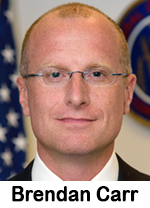 Indeed, TikTok has been caught engaging in a pattern of illicit surveillance and making false statements about personnel in Beijing accessing sensitive U.S. user data. These facts were laid bare for the world to see when the House Energy and Commerce Committee held a TikTok oversight hearing last year. And that is why there is now a broad, bipartisan consensus that TikTok cannot continue to operate in the U.S. in its current form. I want to applaud the strong, bipartisan leadership that Members of Congress have shown in advancing this bill, which would definitively resolve the serious national security threats TikTok poses by banning the app or requiring that it genuinely sever ties to the CCP. This is a smart, threat-specific bill that would address a clear and present danger. I hope that this bill will soon become law.”
Indeed, TikTok has been caught engaging in a pattern of illicit surveillance and making false statements about personnel in Beijing accessing sensitive U.S. user data. These facts were laid bare for the world to see when the House Energy and Commerce Committee held a TikTok oversight hearing last year. And that is why there is now a broad, bipartisan consensus that TikTok cannot continue to operate in the U.S. in its current form. I want to applaud the strong, bipartisan leadership that Members of Congress have shown in advancing this bill, which would definitively resolve the serious national security threats TikTok poses by banning the app or requiring that it genuinely sever ties to the CCP. This is a smart, threat-specific bill that would address a clear and present danger. I hope that this bill will soon become law.” Are you a sales curmudgeon? You know, that old-school, out-of-touch terrestrial radio ad sales rep who is too lazy to learn the new digital/social media sales world?
Are you a sales curmudgeon? You know, that old-school, out-of-touch terrestrial radio ad sales rep who is too lazy to learn the new digital/social media sales world? settled beforehand. Audacy expects to emerge from the Chapter 11 process after approval from the FCC. Audacy chairman, president and CEO David J. Field says, “Today’s announcement marks a powerful step forward for Audacy, positioning the company for an exciting future. As expected, we have achieved a speedy confirmation of our prepackaged Plan, which will enable Audacy to pursue our strategic goals and opportunities in the dynamic audio business. We aim to drive accelerated growth and financial performance, capitalizing on our scaled, leadership position, our uniquely differentiated premium audio content and the robust capital structure that we will have upon emergence. I also want to express my gratitude to our team, who continue their outstanding work to serve our listeners and customers with excellence and fulfill our commitments without missing a beat.” The company notes that under the Plan, trade and other unsecured creditors will not be impaired.
settled beforehand. Audacy expects to emerge from the Chapter 11 process after approval from the FCC. Audacy chairman, president and CEO David J. Field says, “Today’s announcement marks a powerful step forward for Audacy, positioning the company for an exciting future. As expected, we have achieved a speedy confirmation of our prepackaged Plan, which will enable Audacy to pursue our strategic goals and opportunities in the dynamic audio business. We aim to drive accelerated growth and financial performance, capitalizing on our scaled, leadership position, our uniquely differentiated premium audio content and the robust capital structure that we will have upon emergence. I also want to express my gratitude to our team, who continue their outstanding work to serve our listeners and customers with excellence and fulfill our commitments without missing a beat.” The company notes that under the Plan, trade and other unsecured creditors will not be impaired. compliance reports to the Bureau through the remainder of the current license terms of the two stations, and pay a Civil Penalty to the United States Treasury in the total amount of $500,000.” The violations in question center on a program that aired on Townsquare’s news/talk outlets KIDO-AM, Boise and KLIX-AM, Idaho Falls from October 2021 through March 2023 in which they “broadcast a one-hour episode of, and 30-second advertisements promoting, the Program. The format of each episode nominally resembled a news interview/public affairs program produced and presented by the Stations. In fact, however, all episodes of the Program were paid political presentations. Townsquare was paid to broadcast episodes of the Program and related advertisements initially by and on behalf of the Idaho Republican Party, and later by Tom Luna on behalf of a company doing business as Tom Luna and Associates. The hosts of each episode (Tom Luna and Victor Miller, chairman of the Ada County (Idaho) Republican Party) were solely responsible for producing the Program, including selecting guests and determining program content. Neither station provided any on-air Sponsorship ID announcements for the vast majority of the episodes or promotional advertisements that they aired revealing to listeners the true nature of the broadcasts and the identity of those who paid for them. In addition, multiple episodes of the Program contained appearances that constituted uses by legally qualified candidates for public office and communicated messages relating to political matters of national importance. Neither station uploaded records of any such candidate uses or messages to their respective online political files.”
compliance reports to the Bureau through the remainder of the current license terms of the two stations, and pay a Civil Penalty to the United States Treasury in the total amount of $500,000.” The violations in question center on a program that aired on Townsquare’s news/talk outlets KIDO-AM, Boise and KLIX-AM, Idaho Falls from October 2021 through March 2023 in which they “broadcast a one-hour episode of, and 30-second advertisements promoting, the Program. The format of each episode nominally resembled a news interview/public affairs program produced and presented by the Stations. In fact, however, all episodes of the Program were paid political presentations. Townsquare was paid to broadcast episodes of the Program and related advertisements initially by and on behalf of the Idaho Republican Party, and later by Tom Luna on behalf of a company doing business as Tom Luna and Associates. The hosts of each episode (Tom Luna and Victor Miller, chairman of the Ada County (Idaho) Republican Party) were solely responsible for producing the Program, including selecting guests and determining program content. Neither station provided any on-air Sponsorship ID announcements for the vast majority of the episodes or promotional advertisements that they aired revealing to listeners the true nature of the broadcasts and the identity of those who paid for them. In addition, multiple episodes of the Program contained appearances that constituted uses by legally qualified candidates for public office and communicated messages relating to political matters of national importance. Neither station uploaded records of any such candidate uses or messages to their respective online political files.” the Annual Report alone, without also uploading it to its intended destination in a timely manner, here more than nine months late, may, in certain circumstances, constitute (and here does constitute) a violation of the requirements to analyze the Stations’ EEO program. The length of time during which Cumulus failed to upload its Annual Report is persuasive evidence that Cumulus did not ‘routinely analyze the adequacy of their various EEO program elements in achieving broad outreach to all segments of the community’ and address any problems found as a result of such analysis… Consequently, given the specific circumstances of this case, we reject Cumulus’s argument that any self-evaluation it did in fact undertake was adequate and satisfied the self-assessment rule.”
the Annual Report alone, without also uploading it to its intended destination in a timely manner, here more than nine months late, may, in certain circumstances, constitute (and here does constitute) a violation of the requirements to analyze the Stations’ EEO program. The length of time during which Cumulus failed to upload its Annual Report is persuasive evidence that Cumulus did not ‘routinely analyze the adequacy of their various EEO program elements in achieving broad outreach to all segments of the community’ and address any problems found as a result of such analysis… Consequently, given the specific circumstances of this case, we reject Cumulus’s argument that any self-evaluation it did in fact undertake was adequate and satisfied the self-assessment rule.”  Folks in the Gen Z and millennial demographics are heavily
Folks in the Gen Z and millennial demographics are heavily  program. The story notes that Slaten last worked at KFNS seven years ago and this will be his sixth stint with the station. Slaten has a reputation in the market for being controversial. He also hosts a conservative political podcast called “The King’s Court” and previously worked for the late Bob Romanik, a political raconteur whose talk station KQQZ-AM was shut down by the FCC after it was discovered that Romanik, a convicted felon, was illegally operating the station. In his new position with KFNS-AM, Slaten is agreeing to stick to sports talk.
program. The story notes that Slaten last worked at KFNS seven years ago and this will be his sixth stint with the station. Slaten has a reputation in the market for being controversial. He also hosts a conservative political podcast called “The King’s Court” and previously worked for the late Bob Romanik, a political raconteur whose talk station KQQZ-AM was shut down by the FCC after it was discovered that Romanik, a convicted felon, was illegally operating the station. In his new position with KFNS-AM, Slaten is agreeing to stick to sports talk. 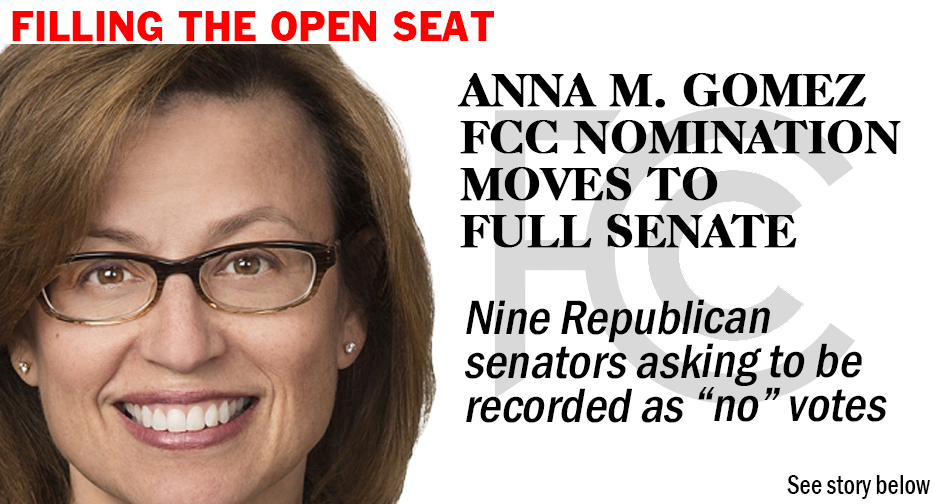
 of the conservative Radio Mambí network of Spanish-language news/talk stations from TelevisaUnivision aggravated some conservatives who petitioned the FCC to deny the license transfers. The petition was rejected. The Radio Mambí format goes back to Amancio Víctor Suárez’s launch of programming created by anti-communist Cuban exiles in the mid-1980s. The group of 18 radio stations will gradually be turned over to Latino Media Network throughout this year. Company co-founder Jess Morales Rocketto is quoted saying, “We’re not the first business owners with our own political leanings,” while adding that they are focused on commercial success and not “imposing a political agenda.”
of the conservative Radio Mambí network of Spanish-language news/talk stations from TelevisaUnivision aggravated some conservatives who petitioned the FCC to deny the license transfers. The petition was rejected. The Radio Mambí format goes back to Amancio Víctor Suárez’s launch of programming created by anti-communist Cuban exiles in the mid-1980s. The group of 18 radio stations will gradually be turned over to Latino Media Network throughout this year. Company co-founder Jess Morales Rocketto is quoted saying, “We’re not the first business owners with our own political leanings,” while adding that they are focused on commercial success and not “imposing a political agenda.” 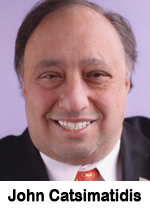 communication during emergencies.” At this week’s NAB Show in Las Vegas, Catsimatidis met with members of the FCC and FEMA and, at Catsimatidis’ request, former Vice President Mike Pence voiced a “Save AM Radio” spot for 77 WABC. Catsimatidis is offering the PSA to every radio station in America. Catsimatidis says, “The automotive industry is doing a huge disservice to Americans by even considering the removal of AM radio from cars. They are putting the safety of Americans at peril by putting profits before people. Americans deserve better. I am urging all AM and FM radio stations, the NAB, the RAB, and state broadcast associations to band together and bring common sense to Ford and other auto manufacturers.”
communication during emergencies.” At this week’s NAB Show in Las Vegas, Catsimatidis met with members of the FCC and FEMA and, at Catsimatidis’ request, former Vice President Mike Pence voiced a “Save AM Radio” spot for 77 WABC. Catsimatidis is offering the PSA to every radio station in America. Catsimatidis says, “The automotive industry is doing a huge disservice to Americans by even considering the removal of AM radio from cars. They are putting the safety of Americans at peril by putting profits before people. Americans deserve better. I am urging all AM and FM radio stations, the NAB, the RAB, and state broadcast associations to band together and bring common sense to Ford and other auto manufacturers.”  the station’s carriage of the sports talk format branded as “CBS Sports 1360.”According to a
the station’s carriage of the sports talk format branded as “CBS Sports 1360.”According to a 











 Jones to pay $965 million in total damages to the families of eight victims of the Sandy Hook school shootings and an FBI agent. Additional damages covering attorneys’ fees will be determined next month. The verdict came after three weeks of testimony in a state court in Waterbury. Not sounding remorseful on yesterday’s radio show (Wednesday, 10/12), Jones railed against the jury’s decision, urging listeners to send money or buy supplements sold on his website. He stated, “They want to scare us away from questioning Uvalde or Parkland [but] we’re not going away, we’re not going to stop.” Jones actually cheered as the judge listed off millions in damages for each count. After one count was read, Jones said, “Get those numbers up.” At times he gave thumbs-up and raised his hand in the air. Jones and Free Speech Systems – parent of his Infowars content company – were held liable for defamation for spreading false stories that the Sandy Hook shootings were a hoax and the victims were actually “crisis actors,” who were following a script written by the government to build support for gun control. Fifteen plaintiffs were awarded damages in the case, one of three suits against Jones from his conspiracy theories about the shooting. The largest single award of $120 million went to Robbie Parker, whose six-year-old daughter, Emilie, was killed in the shooting. Jones spent years mocking Parker as an actor. The plaintiffs also included an FBI agent who responded to the shooting; he was awarded $90 million in damages. An earlier suit in Texas awarded one victim’s parents close to $50 million. Another case is going to the damages phase after Jones lost the suit.
Jones to pay $965 million in total damages to the families of eight victims of the Sandy Hook school shootings and an FBI agent. Additional damages covering attorneys’ fees will be determined next month. The verdict came after three weeks of testimony in a state court in Waterbury. Not sounding remorseful on yesterday’s radio show (Wednesday, 10/12), Jones railed against the jury’s decision, urging listeners to send money or buy supplements sold on his website. He stated, “They want to scare us away from questioning Uvalde or Parkland [but] we’re not going away, we’re not going to stop.” Jones actually cheered as the judge listed off millions in damages for each count. After one count was read, Jones said, “Get those numbers up.” At times he gave thumbs-up and raised his hand in the air. Jones and Free Speech Systems – parent of his Infowars content company – were held liable for defamation for spreading false stories that the Sandy Hook shootings were a hoax and the victims were actually “crisis actors,” who were following a script written by the government to build support for gun control. Fifteen plaintiffs were awarded damages in the case, one of three suits against Jones from his conspiracy theories about the shooting. The largest single award of $120 million went to Robbie Parker, whose six-year-old daughter, Emilie, was killed in the shooting. Jones spent years mocking Parker as an actor. The plaintiffs also included an FBI agent who responded to the shooting; he was awarded $90 million in damages. An earlier suit in Texas awarded one victim’s parents close to $50 million. Another case is going to the damages phase after Jones lost the suit. Jim Bohannon is This Week’s Guest on Harrison Podcast. Longtime talk radio superstar Jim Bohannon is this week’s guest on the award-winning PodcastOne series, “The Michael Harrison Interview.” Yesterday (10/10), the radio industry was shocked and deeply saddened at the announcement by Cumulus Media’s Westwood One in TALKERS that one of its longest running, most successful and universally beloved syndicated talk show hosts would be hanging up his headphones on Friday October 14th due to health issues. It was a surprise to many – but industry insiders were already aware that this broadcasting legend was suffering from an advanced case of esophageal cancer… and the prognosis was increasingly grim. His career that spanned more than five decades including the past 30 as host of his solid late-night syndicated show is one of the greatest of all time. His achievements include induction into the NAB Broadcasting Hall of Fame, the Radio Hall of Fame, and the Missouri Broadcasters Association Hall of Fame. He has received the First Amendment Award from the Radio-Television Digital News Association and the Lifetime Achievement Award from TALKERS magazine; along with numerous other awards and honors. Michael Harrison interviewed Jim Bohannon this past Sunday (10/9) afternoon. It is candid, compelling and will no doubt be a historic audio document capturing a dramatic slice of radio history and culture – as well as deep insights into the human condition. After recording the interview and podcast, Michael Harrison stated, “It is with profound sadness and love that I have the honor of presenting this interview to the public.” Not to be missed! To listen to the podcast in its entirety, please click
Jim Bohannon is This Week’s Guest on Harrison Podcast. Longtime talk radio superstar Jim Bohannon is this week’s guest on the award-winning PodcastOne series, “The Michael Harrison Interview.” Yesterday (10/10), the radio industry was shocked and deeply saddened at the announcement by Cumulus Media’s Westwood One in TALKERS that one of its longest running, most successful and universally beloved syndicated talk show hosts would be hanging up his headphones on Friday October 14th due to health issues. It was a surprise to many – but industry insiders were already aware that this broadcasting legend was suffering from an advanced case of esophageal cancer… and the prognosis was increasingly grim. His career that spanned more than five decades including the past 30 as host of his solid late-night syndicated show is one of the greatest of all time. His achievements include induction into the NAB Broadcasting Hall of Fame, the Radio Hall of Fame, and the Missouri Broadcasters Association Hall of Fame. He has received the First Amendment Award from the Radio-Television Digital News Association and the Lifetime Achievement Award from TALKERS magazine; along with numerous other awards and honors. Michael Harrison interviewed Jim Bohannon this past Sunday (10/9) afternoon. It is candid, compelling and will no doubt be a historic audio document capturing a dramatic slice of radio history and culture – as well as deep insights into the human condition. After recording the interview and podcast, Michael Harrison stated, “It is with profound sadness and love that I have the honor of presenting this interview to the public.” Not to be missed! To listen to the podcast in its entirety, please click 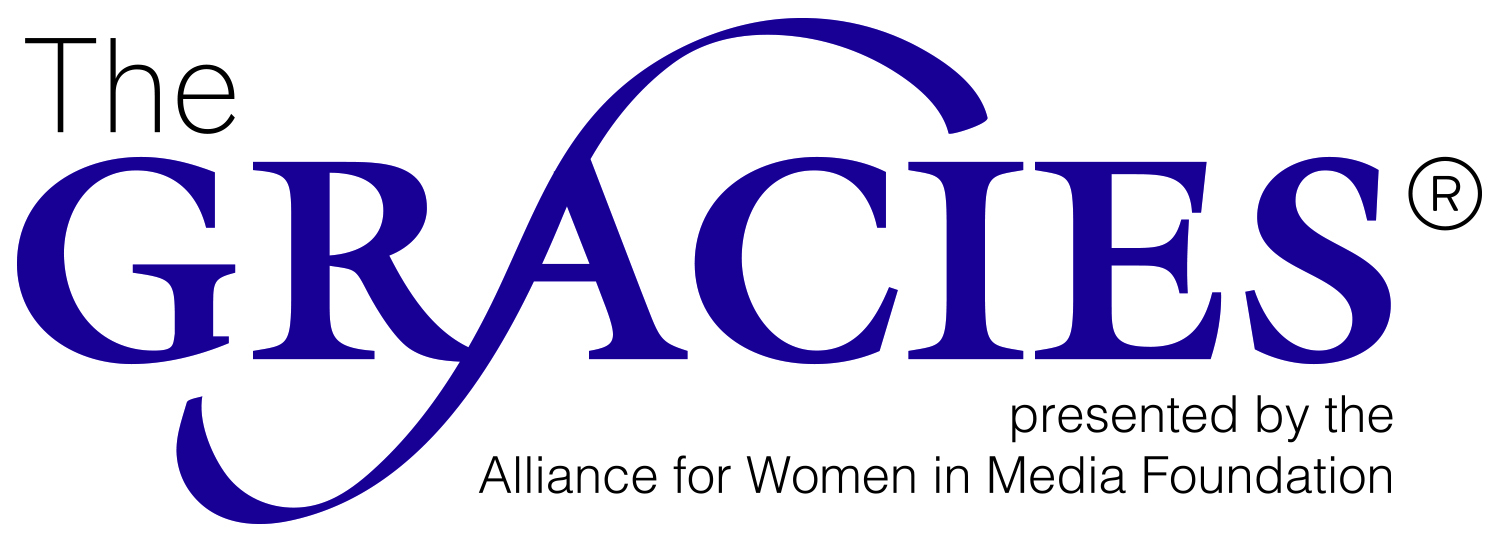 have honored individual talent and exemplary programming created by women, for women, and about women in radio, television, and digital media in news and entertainment. AWMF president Becky Brooks comments, “We are more committed than ever to honor the remarkable work by so many in our creative community. As our most important fundraiser of the year, the Gracies enables the Foundation to deliver on its promise to further the connection, education and recognition of women in media.” The 2023 Gracie Awards co-chairs are: The Weiss Agency executive vice president Heather Cohen; McVay Media Consulting president Mike McVay; and Hallmark Media chief communications officer Annie Howell. Emmy winner Vicangelo Bulluck has produced the Gracie Awards since 2016 and will return in that capacity for the 2023 awards. Entry eligibility air dates are January 1, 2022 through December 31, 2022; deadline for all entries is January 12, 2023 at 11:59 pm (ET).
have honored individual talent and exemplary programming created by women, for women, and about women in radio, television, and digital media in news and entertainment. AWMF president Becky Brooks comments, “We are more committed than ever to honor the remarkable work by so many in our creative community. As our most important fundraiser of the year, the Gracies enables the Foundation to deliver on its promise to further the connection, education and recognition of women in media.” The 2023 Gracie Awards co-chairs are: The Weiss Agency executive vice president Heather Cohen; McVay Media Consulting president Mike McVay; and Hallmark Media chief communications officer Annie Howell. Emmy winner Vicangelo Bulluck has produced the Gracie Awards since 2016 and will return in that capacity for the 2023 awards. Entry eligibility air dates are January 1, 2022 through December 31, 2022; deadline for all entries is January 12, 2023 at 11:59 pm (ET). United States, Barack Obama, visits his former aides Jon Favreau, Jon Lovett, Dan Pfeiffer, and Tommy Vietor for an interview that airs tomorrow (Friday, 10/14) at 7:00 pm as an episode of Sirius XM’s “Crooked Radio” (SiriusXM Progress). It will then be issued Saturday as a podcast. The former President’s “Pod Save America” appearance will be replayed tomorrow night (Friday, 10/14) at 9:00 pm and throughout the weekend. It will be his first on the show in exactly two years (10/14/2020). … Following a 24-year tenure at Los Angeles’ KNX “News 97.1 FM,” morning co-anchor/senior political correspondent Dick Helton (pictured at right) will retire tomorrow (Friday, 10/14) from the Audacy facility. Prior to joining KNX, Helton
United States, Barack Obama, visits his former aides Jon Favreau, Jon Lovett, Dan Pfeiffer, and Tommy Vietor for an interview that airs tomorrow (Friday, 10/14) at 7:00 pm as an episode of Sirius XM’s “Crooked Radio” (SiriusXM Progress). It will then be issued Saturday as a podcast. The former President’s “Pod Save America” appearance will be replayed tomorrow night (Friday, 10/14) at 9:00 pm and throughout the weekend. It will be his first on the show in exactly two years (10/14/2020). … Following a 24-year tenure at Los Angeles’ KNX “News 97.1 FM,” morning co-anchor/senior political correspondent Dick Helton (pictured at right) will retire tomorrow (Friday, 10/14) from the Audacy facility. Prior to joining KNX, Helton 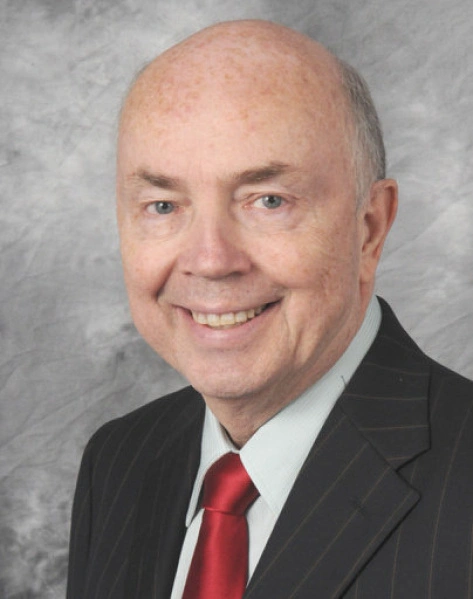 spent 29 years anchoring in Chicago at co-owned/similarly-formatted WBBM-AM. … Per a report in The Lincoln Journal-Star, Damon Benning succeeds Matt Davison as analyst on University of Nebraska football radio broadcasts. Formerly a host on NRG Media Omaha sports talk KOZN “1620 The Zone,” Benning played for the Cornhuskers from 1992 – 1996. Davison had been a Nebraska analyst the past 19 years. … As part of an intra-Pennsylvania transaction, 34 full-power stations and 12 translators in five “Keystone State” markets are changing hands. Forever Media is the seller; Kristen Cantrell’s Southern Belle Media Family/Seven Mountains Media Family is the buyer. Among stations being sold include: sports talk WQWK, news/talk WRSC, W279DK, and W227DV (all in the State College market); Altoona market news/talk WFBG; news/talk WNTJ, W230BK, and W283CX, and news/talk WNTI (all in the Johnstown market); news/talk WMGW, W264DK, news-talk WTIV and W287DC, and news/talk WFRA and W251CL (all in the Meadville-Franklin market) news/talk WKST, W250CW, and W248DJ (all in the New Castle market); and Lebanon market news/talk WLBR. The complete transaction is for $17.375 million in assumption of promissory notes to Kerby E. Confer, the Judith M. Confer Irrevocable Trust, and Confermation, LLP. Kerby E. Confer is Kristen Cantrell father.
spent 29 years anchoring in Chicago at co-owned/similarly-formatted WBBM-AM. … Per a report in The Lincoln Journal-Star, Damon Benning succeeds Matt Davison as analyst on University of Nebraska football radio broadcasts. Formerly a host on NRG Media Omaha sports talk KOZN “1620 The Zone,” Benning played for the Cornhuskers from 1992 – 1996. Davison had been a Nebraska analyst the past 19 years. … As part of an intra-Pennsylvania transaction, 34 full-power stations and 12 translators in five “Keystone State” markets are changing hands. Forever Media is the seller; Kristen Cantrell’s Southern Belle Media Family/Seven Mountains Media Family is the buyer. Among stations being sold include: sports talk WQWK, news/talk WRSC, W279DK, and W227DV (all in the State College market); Altoona market news/talk WFBG; news/talk WNTJ, W230BK, and W283CX, and news/talk WNTI (all in the Johnstown market); news/talk WMGW, W264DK, news-talk WTIV and W287DC, and news/talk WFRA and W251CL (all in the Meadville-Franklin market) news/talk WKST, W250CW, and W248DJ (all in the New Castle market); and Lebanon market news/talk WLBR. The complete transaction is for $17.375 million in assumption of promissory notes to Kerby E. Confer, the Judith M. Confer Irrevocable Trust, and Confermation, LLP. Kerby E. Confer is Kristen Cantrell father. Workhouse Media; Dat Dude Entertainment; and Jam Street Media, “More To It With Marcellus Wiley” will drop next Tuesday (10/18) on The Dan Patrick Podcast Network. Former co-host of FS1’s “Speak For Yourself” and ESPN’s “SportsNation,” all-pro defensive end Wiley played ten seasons in the NFL for four different teams. Patrick opines, “Marcellus’ frequent appearances on my show always stood out because he never showed up with cliché comments. He’s never been boring and I love that he brings something new to every conversation. I’m looking forward to listening to his new show and thrilled that he’s officially part of our family.” Wiley notes, “I’m honored to work with the legendary trailblazer Dan Patrick, whose path of success perfectly embodies the title of this podcast. I’m so excited to share these amazing journeys of perseverance and success with the world to inspire the inner power we all possess.” Wiley’s podcast will feature conversations with athletes, entertainers, and people with surprising stories that prove there’s more to everyone’s reality than meets the eye. It kicks off with an interview with rapper Lil Wayne. Future scheduled guests include Anthony Anderson, Charles Barkley, Snoop Dogg, Andrew Yang, Deion Sanders and Ben Horowitz.
Workhouse Media; Dat Dude Entertainment; and Jam Street Media, “More To It With Marcellus Wiley” will drop next Tuesday (10/18) on The Dan Patrick Podcast Network. Former co-host of FS1’s “Speak For Yourself” and ESPN’s “SportsNation,” all-pro defensive end Wiley played ten seasons in the NFL for four different teams. Patrick opines, “Marcellus’ frequent appearances on my show always stood out because he never showed up with cliché comments. He’s never been boring and I love that he brings something new to every conversation. I’m looking forward to listening to his new show and thrilled that he’s officially part of our family.” Wiley notes, “I’m honored to work with the legendary trailblazer Dan Patrick, whose path of success perfectly embodies the title of this podcast. I’m so excited to share these amazing journeys of perseverance and success with the world to inspire the inner power we all possess.” Wiley’s podcast will feature conversations with athletes, entertainers, and people with surprising stories that prove there’s more to everyone’s reality than meets the eye. It kicks off with an interview with rapper Lil Wayne. Future scheduled guests include Anthony Anderson, Charles Barkley, Snoop Dogg, Andrew Yang, Deion Sanders and Ben Horowitz. Andrew Devall, presidents of Texas entities Falls Media and Q-Media Group, respectively, wrote they “were entirely unaware of our participation in this proceeding and did not knowingly consent to having our name included on such filings. We are relatively small radio broadcast operators with enormous demands on our limited time and resources. In general, we do not have the bandwidth to personally monitor activities at the FCC. Given this highly unusual circumstance, [we] respectfully request that the Commission remove the prior filings indicating our support for GBS’s requested rule change from the record.” According to Colorado broadcasters Scott Poese (Ranchland Broadcasting) and Warren Epstein (Pikes Peak College), comments filed under their names “do not accurately reflect our views. Contrary to what the comments indicate, [we] do not support the GeoBroadcast Solutions petition or believe it would benefit our stations or the public.”
Andrew Devall, presidents of Texas entities Falls Media and Q-Media Group, respectively, wrote they “were entirely unaware of our participation in this proceeding and did not knowingly consent to having our name included on such filings. We are relatively small radio broadcast operators with enormous demands on our limited time and resources. In general, we do not have the bandwidth to personally monitor activities at the FCC. Given this highly unusual circumstance, [we] respectfully request that the Commission remove the prior filings indicating our support for GBS’s requested rule change from the record.” According to Colorado broadcasters Scott Poese (Ranchland Broadcasting) and Warren Epstein (Pikes Peak College), comments filed under their names “do not accurately reflect our views. Contrary to what the comments indicate, [we] do not support the GeoBroadcast Solutions petition or believe it would benefit our stations or the public.”